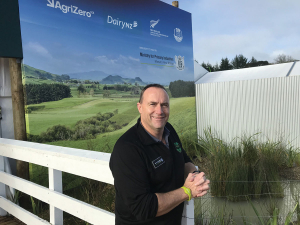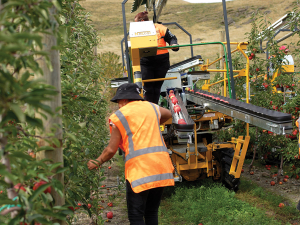AS FONTERRA last month announced a 33% surge in half-year net profit, its share price had another story to tell.
The co-op’s share soared to $7.50, a jump of 50c on the back of the financial results. It was launched in November last year at $5.50/share. For Fonterra’s farmer shareholders, the financial results are bittersweet.
A 30c/kgMS lift in milk payout will go some way to ease the pain of drought. However, for South Island farmers, shielded from the drought, buying more Fonterra shares to match increased production has just become harder.
TAF (trading among farmers) may have fixed the redemption risk to Fonterra’s balance sheet. But it has exposed the co-op’s lifeblood – milk supply – to a new threat. Fonterra could lose milk supply because its share price is now too high for farmers to buy in.
Delegates to a recent Federated Farmers dairy council meeting said they were aware of suppliers who had already switched to other processors. A declining milk supply would be against the co-op’s strategy to lift volume and value.
This brings us to the question, is TAF working? Fonterra’s board and management, the architects of TAF, will say yes. For shareholders, the jury is still out.
TAF introduced a trading market for farmers to trade milk supply-linked shares among themselves, relieving Fonterra of the obligation to trade its shares, which directors argued exposed its balance sheet to a run on capital.
Many farmers opposed TAF, fearing the offer of units to sharemarket investors was the first step in loss of farmer control and ownership of New Zealand’s biggest company.
TAF may have enough measures in place to ensure 100% shareholder control. But the out-of-control share price, set by the share market, is ironically driving shareholders away from the co-op.
Five years ago, all farmers in Fonterra had common interests. What was good for one farmer was good for all farmers. Now, some farmers have interest in Fonterra units, as do investors around the world. Fonterra also has to ensure a fair dividend to investors, balancing it with a decent payout to its shareholders. There are factions within the co-op governance structure.
No one said TAF was going to be simple. But some shareholders did warn it would open a can of worms. They appear correct.


















